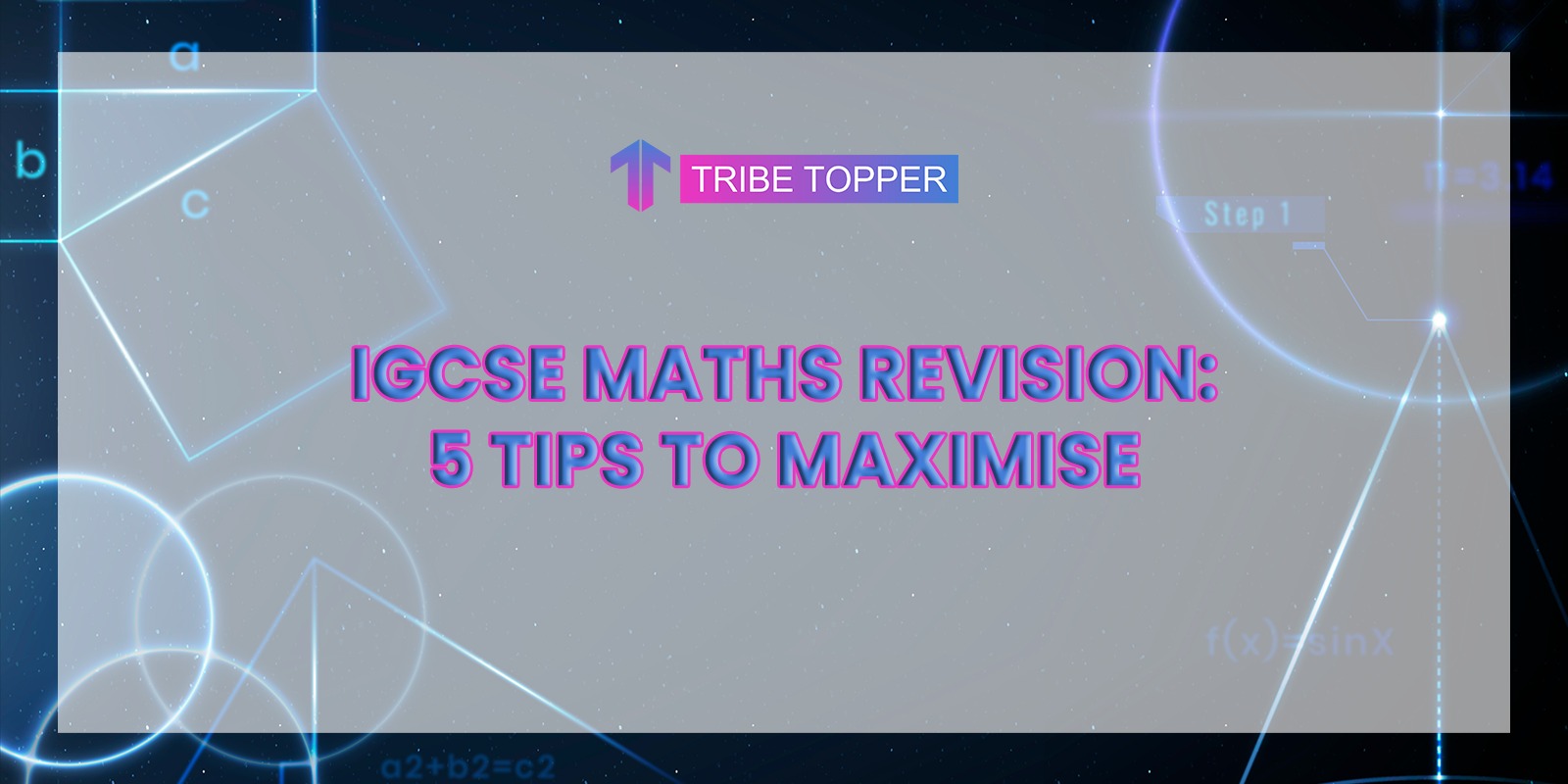IGCSE (International General Certificate of Secondary Education) Mathematics is a curriculum offered to students aged fourteen to sixteen. It aims to develop their mathematical skills, knowledge, and understanding in various areas of mathematics. The course covers various topics, including numbers, algebra, geometry, statistics, and probability.
Students learn about integers, fractions, decimals, percentages, and ratios in numbers. They also study the properties of prime numbers, factors, and multiples. Algebraic concepts include equations, inequalities, functions, and graphs. Geometry covers angles, triangles, circles, and the properties of shapes. IGCSE Maths Students explore measurement, including length, area, volume, and units of measurement.
The statistical component involves collecting, organizing, and analyzing data using tables, graphs, and charts. Probability introduces students to chance and calculating probabilities in different scenarios.
Throughout the course, students are encouraged to apply mathematical concepts to real-life situations, develop problem-solving skills, and enhance their logical reasoning abilities. They also learn to use appropriate mathematical notation, formulas, and techniques to solve problems accurately.
Assessment is typically through written examinations that test students’ understanding, application, and problem-solving skills. The exams include a mix of multiple-choice, short-answer, and extended-response questions.
Overall, IGCSE Mathematics provides a solid foundation in mathematical concepts and skills, preparing students for further study in mathematics or related disciplines.
Preparing for the IGCSE Maths exam requires careful planning and effective revision strategies. With the right approach, you can maximize your revision time and improve your chances of achieving a strong grade.
This guide will provide five essential tips to help you make the most of your IGCSE Maths revision.
1. Understand the Exam Format:
Before diving into your revision, it is crucial to familiarize yourself with the exam format. Understand the structure of the paper, the number of sections, and the types of questions you can expect. For IGCSE Maths, you will typically encounter multiple-choice questions, structured questions, and problem-solving questions. Knowing the exam format will allow you to allocate your revision time effectively and tailor your approach to each question type.
2. Create a Revision Schedule:
Developing a revision schedule is essential in maximizing your preparation. Divide your available study time into manageable blocks and assign specific topics or chapters to each session. This approach will ensure you cover all the necessary material and avoid feeling overwhelmed. Be realistic when setting your goals, allowing time for breaks and revising previously covered topics. Additionally, set aside dedicated revision sessions closer to the exam to consolidate your knowledge and practice exam-style questions.
3. Practice Mock questions:
Consistent practice is key to mastering IGCSE Maths. Start by revising the fundamental concepts and gradually progress to more complex topics. Regularly attempt practice questions and past papers to assess your understanding and identify improvement areas. Practice questions can help you become familiar with the question style, improve your problem-solving skills, and enhance your time management abilities. Reviewing and analyzing your mistakes will allow you to learn from them and strengthen your weak areas. Being regular is most important here as the chances of mistakes get significantly reduced if we practice a particular topic occasionally.
4. Seek Additional Resources and Support:
In addition to your textbook and class notes, explore supplementary resources to aid your revision. Online platforms, such as educational websites and video tutorials, offer explanations, work examples, and interactive quizzes. These resources can provide alternative perspectives, clarify difficult concepts, and offer additional practice materials. If you encounter specific challenges or struggle with certain topics, consider seeking help from your teacher, classmates, or online forums. Collaborating with others can provide valuable insights and different approaches to problem-solving.
5. Review and Consolidate:
As your exam approaches, reviewing and consolidating your knowledge is essential. Revisit your class notes, textbooks, and revision materials to refresh your understanding of key concepts. Summarize important formulas, definitions, and problem-solving techniques in concise revision notes. Mind maps, flashcards, and visual aids can also be helpful tools for reviewing and memorizing information. Focus on understanding the underlying principles and connections between different topics rather than simply memorizing formulas. Additionally, dedicate time to solving challenging problems and practice papers to enhance your problem-solving skills and confidence.
Maximizing your revision with IGCSE Maths Mock Question requires a well-structured approach and consistent effort. By understanding the exam format, creating a revision schedule, practicing regularly, seeking additional resources and support, and reviewing and consolidating your knowledge, you can significantly improve your chances of success. Stay motivated, take breaks when needed, and approach your revision positively. With determination and effective strategies, you can excel in your IGCSE Maths exam and achieve your desired grade.
Hope you have got all the points clearly and will follow it religiously to achieve maximum.
Good luck!




